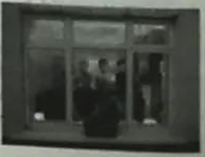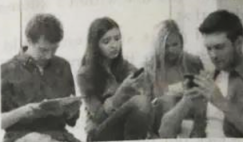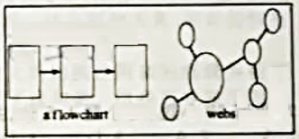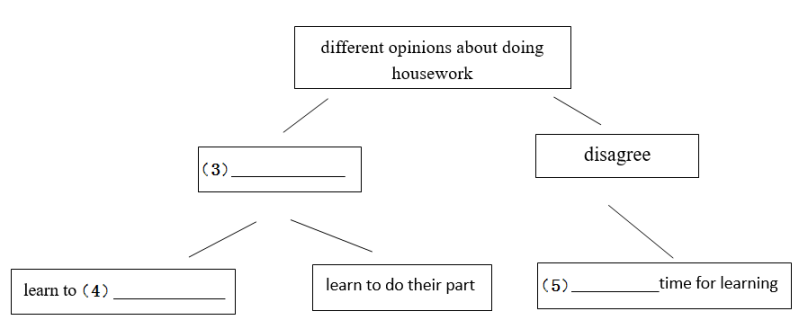Sam was very nervous. It was his first day in a new1, and lunch was only thirty minutes away. For most students, lunch is the2part of the school day. It is time when you talk with your friends, get to know what interesting things everyone is doing, and, of course,3. Sam, however, didn't know anyone or anything, like where to sit or with whom to sit at lunch.
Sam's4was in the army, so his family moved a lot. He had really liked his old school and5leaving his two best friends. They still talked to each other through phone calls and emails,6he couldn't see them every day. He wondered if their7would continue. He didn't want to lose them, but he knew it would be8for them to stay close.
"I know this is hard on you." his mother said as he got ready for school this morning, "and I'm really9you have to keep changing schools." Sam could see regret in her eyes, but he didn't want her to feel that way.10had always been ready to defend 保卫) not only the family but also the country. Sam loved her so much. He gave her a smile and told her not to11. He had wanted to mean it. but there was still always worry in him when they moved.
The12time came quickly. As Sam was walking to the dining room, a voice behind him said, "Excuse me." Sam13and saw five friendly face
"Would you like to join us?" asked one of them.
This14invitation was exactly what he needed. Sam nodded yes15and joined them. He was sure about his future school life now.
Basketball, running and swimming are popular events (项目) at the Olympics. But there are also some events that are not as popular. Some are even very strange. Let's see if you have any knowledge about the following events.
 |
Tug-of-war This event started in 1900 and left the Olympics in 1920. The team wins if they pull the rope past a certain point first. Interestingly, more than one team from a country can enter in this event. This makes it possible for one country to win several medals |
|
|
Rope climbing It first appeared as an Olympic sport in 1896. The climber who spends the shortest time reaching the top is the winner. The rope used to be 15 meters long. Years later, it was shortened to 8 meters, for some reason. After 1932, there was no rope climbing in the Olympics. |
|
|
Race walking In race walking, walkers have to win the race by walking. To make sure that they do not run, race walkers must have one foot on the ground at all times. Race walking has been an Olympic sport since 1904. Men enter in 20 kilometer and 50 kilometer races; women only race 20 kilometers. |

Every night, just after the sun goes down, Ruth Medjber talks with her neighbours in Dublin, Ireland, and takes a picture of them at their windows.
These photos, in some way, show people's lives during the global pandemic (大流行病).
"I started out taking photos of just friends and family. In this way, I could connect with them during this special time when people have to stay at home, " the photographer explained. "I live alone, so I was missing the days when we were free to communicate with friends. Every evening, on my way to seeing friends, I had a sense of purpose."
Now she's making new friends.
The photo project has taken off online, and she has opened it up to volunteers. But they must be the people who live within 5 kilometers of her home- the Irish government doesn't allow people to go farther out than that.
"I pick a street each night and try to take photos of volunteers, "Ruth said. "I usually take about four photos before it is completely dark, but two if I'm talking a lot- which I love to do."
She said more and more neighbours are joining in her photo project and it has now got a name, Love at Home.
"I think people like knowing that they're not alone even if they have to stay at home, and they really try to pick out those who are similar to themselves in the photos. "she said. "It's also a different view(视角) of the pandemic: the more human view. Instead of showing what the pandemic has taken from us, it shows that it has given us more chances to be with family and friends and spend time together."
"I think we'd love most to find something nice, even in the most serious situation as it is now," Ruth said.
My dear boys and girls, good morning. Today I'm going to talk to you about my understanding of learning history.
Many of you may think it is a terrible thing to study history. You may often wonder why we students should study something that has nothing to do with our own lives. If you think that way, I should say you are far from the truth.
In fact, if we study history, we can learn quite a lot about personal stories and events (事件) of people just like us. The people who came before us helped build and develop the country we are living in. Their ideas often solved many of our problems and troubles. Studying the past helps us to understand what our ancestors' (祖先) lives were like. And it also helps us to see how their experiences have shaped our own life.
To be honest, ▲ . Some of what we study in history helps us understand the mistakes of the past. And these mistakes will help people not to do the same wrong things. People often learn from the past to have a better future.
Whether we like the subject of history or not, we must understand the importance of the events and the people who came before us. Our ancestors' decisions have influenced our own life. Similarly, the decisions of our own generation (一代人) will finally influence those who come after us. In this only way, the world is truly connected.
History is not just a study of the past. History is the study of people, places, and events that can influence the future.
Now do you still think studying history is a sad thing? Or do you have any doubt about learning history? If you have any question, just feel free to ask.

Very often, when we see young people sitting there, looking at the screen of a mobile phone and smiling, we may think nothing is wrong. But when we come to the question "how much time do they actually spend on media(传播媒介) daily?", the answer is surprising: young people spend about nine hours every day using media, and this only includes media used for enjoyment.
Today's young people seem to have become crazy multitaskers, They often use media when doing other activities. Some watch TV when doing homework, some text (发短信), and some others listen to music. But what do young people think of this? A research showed that two thirds of them believed watching TV or texting had no influence schoolwork. Half of them thought using social media made no difference. However, researches have given a different answer:" media multitaskers" did worse in tests.
Scientists did a research among more than 400 students. It shows that those who text a lot have more trouble sleeping and do worse in their study. In another research, students who didn't text during a lesson took down a lot more notes than those who were texting. A similar research also found that students who texted when doing schoolwork had lower overall(总体的) grades.
According to a research, if a kid uses social media a lot, especially at night, he or she will sleep worse and feel more nervous and depressed (消沉的). On the one hand, young people stay up late to check messages and information. They may also be woken up by messages they receive. On the other hand, even the light from a screen could influence their sleep. Some other researches also show that children who use media at night go to bed later, get fewer hours of sleep each week, and become sleepy more easily during the daytime
|
attend beside season sudden take pride in |
Singapore is a city of different cultures. Walking through the streets of Singapore, you can(听到) different languages spoken, such as English, Chinese and Malay. People from different cultures live and work peacefully with each other and(分享) their traditions.
In Singapore, cultural differences are shown in building styles, shops and in many other ways. Take food as an (例子), each culture has its own place to sell their traditional food, but there are also the(著名的) Hawkers markets. Different foods are sold here in these (繁忙的) markets. And these are very popular with Singapore citizens and(游客) from around the world. The food is good and very(便宜的).
Singapore is also an interesting city. Large numbers of people, ideas, etc, are mixed together (在……下面) the same sky. English is used for business, (虽然) the official language here is Malay. Now, however, there is a strong Chinese business community and also a growing Indian business community. Singapore welcomes talented people from around the world and(希望) they will live there all their lives.
My grandpa loves playing chess. Every day he plays chess with his friends. Last week, he (come) to visit us in Canada. But he was very disappointed when he found nobody here could play chess with (he).
One day, when I came back from school, I found my grandpa was sitting(quiet) in a chair, doing nothing. I knew he was lonely. Why not teach him to play online chess on my computer? I thought.
"Grandpa, someone is waitingyou to play chess." I went to him and said.
"Really?" he said, his eyes opening wide. "Who? And where?"
I took him to computer in my room and said, "Right here." Then I taught him how to use the Internet and how(play) chess online. At first, he was slow. Having tried several times, he became better and began to play chess with people from around the world.
"interesting it is! This is simply fantastic!" he cried excitedly.
Now he is quite good at playing chess online and has made a lot of (friend) on the Internet at the same time. My grandfather is much(happy) than before.
Grandpa will go back home soon. I believe the time when we played online chess together was so great both of us will never forget.

Good readers often use a flowchart(流程图) or webs(网状图) to have a better picture of what they read (see the drawings on the right).
A flowchart is used to put events in a certain order. Webs show a main idea and supporting details(细节).
Now try to be a good reader and finish the following TWO tasks.
Task 1: Read Passage I and complete the flowchart.
|
Passage 1: I spent the whole day with Bob today. In the morning, we went shopping but we bought nothing. In the afternoon, we went to a pet shop. Then we played computer games at home. Bob stayed for dinner with our family. We had great fun. →went to a pet shop→→had dinner |
Task 2: Read Passage 2 and complete the webs
Passage 2: Students have different opinions about doing housework. Some students think it's good for them to learn to look after themselves. Besides, they can learn to do their part in the family. However, others don't agree. They think they should save the time on housework for learning their lessons.

、、
注意:1)文中必须包含三个方面的内容要点,可适当发挥参考词汇供选择使用;
2) 文中不得出现真实姓名、学校等信息;
3) 词数:80~100;
4)文章的开头与结尾已给出,不计入总词数,
|
内容要点 |
参考词汇 |
|
Parents' care |
cook food, take ... to and from school, look after... |
|
Parents' love |
trust, advise, encourage... |
|
My thanks |
A Letter to My Parents
Dear Mum and Dad,
Love from
Li Ming